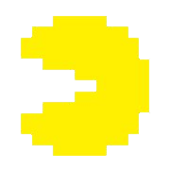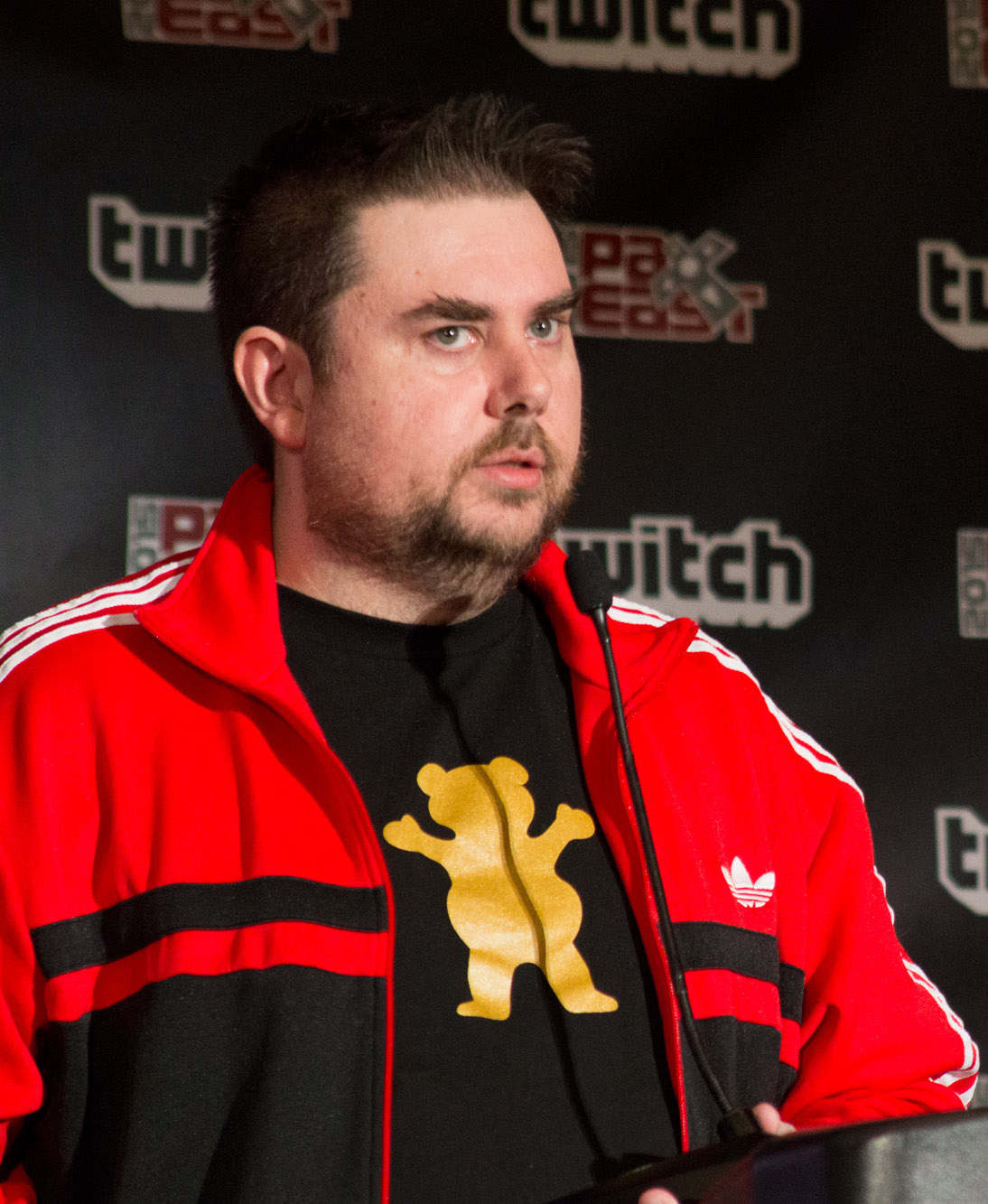|
Alpine Surfer
is an arcade snowboarding video game developed and released by Namco in 1996. It runs on Namco System Super 22 hardware, and is based on their ''Alpine Racer'' series of snowboarding games. The game also allows two cabinets to be linked together, supporting cooperative play, much like their ''Final Lap'' and ''Winning Run'' series. Gameplay The player controls a snowboarder by using a snowboard controller mounted to the base of the cabinet, which the player is meant to stand atop of. The game features two game modes, "Free Riding Mode" and "Gate Racing Mode", as well as two difficulties, Novice and Expert. In Free Riding Mode, the player is freely allowed to snowboard down a mountain while performing air tricks, and must make it down to the bottom before the timer reaches zero. In Gate Race Mode, the player must race against CPU-controlled opponents and must make it down to the bottom in first place, and again must make it towards the bottom before the timer reaches zero. Much li ... [...More Info...] [...Related Items...] OR: [Wikipedia] [Google] [Baidu] |
Namco
was a Japanese multinational corporation, multinational video game and entertainment company, headquartered in Ōta, Tokyo. It held several international branches, including Namco America in Santa Clara, California, Namco Europe in London, Namco Taiwan in Kaohsiung, and Shanghai Namco in mainland China. Namco was founded by Masaya Nakamura (businessman), Masaya Nakamura on June 1, 1955, as beginning as an operator of coin-operated amusement rides. After reorganizing to Nakamura Seisakusho Co., Ltd. in 1959, a partnership with Walt Disney Productions provided the company with the resources to expand its operations. In the 1960s, it manufactured Electro-mechanical game, electro-mechanical arcade games such as the 1965 hit ''Periscope (arcade game), Periscope''. It entered the video game industry after acquiring the struggling Japanese division of Atari, Inc., Atari in 1974, distributing games such as ''Breakout (video game), Breakout'' in Japan. The company renamed itself Namco ... [...More Info...] [...Related Items...] OR: [Wikipedia] [Google] [Baidu] |
Next Generation (magazine)
''Next Generation'' was a video game magazine that was published by Imagine Media (now Future US). It was affiliated to and shared editorial with the UK's ''Edge'' magazine. ''Next Generation'' ran from January 1995 until January 2002. It was published by Jonathan Simpson-Bint and edited by Neil West. Other editors included Chris Charla, Tom Russo, and Blake Fischer. ''Next Generation'' initially covered the 32-bit consoles including 3DO, Atari Jaguar, and the then-still unreleased Sony PlayStation and Sega Saturn. Unlike competitors ''GamePro'' and ''Electronic Gaming Monthly'', the magazine was directed towards a different readership by focusing on the industry itself rather than individual games. Publication history The magazine was first published by GP Publications up until May 1995 when the publisher rebranded as Imagine Media. In September 1999, ''Next Generation'' was redesigned, its cover name shortened to simply ''NextGen''. This would start what was known as "Lif ... [...More Info...] [...Related Items...] OR: [Wikipedia] [Google] [Baidu] |
Namco Games
Namco was a Japanese multinational corporation, multinational video game and entertainment company, headquartered in Ōta, Tokyo. It held several international branches, including Namco America in Santa Clara, California, Namco Europe in London, Na ... was a video game developer and video game publisher, publisher, originally from Japan. Bandai Namco Entertainment is the successor to Namco and continues manufacturing and distributing video games worldwide. For Namco games released following the 2006 merger with Bandai's video game division, see List of Bandai Namco video games. For a list of franchises owned by Bandai Namco, see List of Bandai Namco video game franchises. Arcade-based games Namco initially distributed its games in Japan, while relying on third-party companies, such as Atari, Inc., Atari and Midway Games, Midway Manufacturing to publish them internationally under their own brands. Later, it would handle its own publishing worldwide. Electro-mechanical games ... [...More Info...] [...Related Items...] OR: [Wikipedia] [Google] [Baidu] |
Namco Arcade Games
was a Japanese multinational video game and entertainment company, headquartered in Ōta, Tokyo. It held several international branches, including Namco America in Santa Clara, California, Namco Europe in London, Namco Taiwan in Kaohsiung, and Shanghai Namco in mainland China. Namco was founded by Masaya Nakamura on June 1, 1955, as beginning as an operator of coin-operated amusement rides. After reorganizing to Nakamura Seisakusho Co., Ltd. in 1959, a partnership with Walt Disney Productions provided the company with the resources to expand its operations. In the 1960s, it manufactured electro-mechanical arcade games such as the 1965 hit ''Periscope''. It entered the video game industry after acquiring the struggling Japanese division of Atari in 1974, distributing games such as '' Breakout'' in Japan. The company renamed itself Namco in 1977 and published '' Gee Bee'', its first original video game, a year later. Among Namco's first major hits was the fixed shooter ''Gala ... [...More Info...] [...Related Items...] OR: [Wikipedia] [Google] [Baidu] |
Arcade Video Games
Arcade most often refers to: * Arcade game, a coin-operated game machine ** Arcade cabinet, housing which holds an arcade game's hardware ** Arcade system board, a standardized printed circuit board * Amusement arcade, a place with arcade games * Arcade (architecture), a series of adjoining arches * Shopping mall, one or more buildings forming a complex of shops, also sometimes called a shopping arcade Arcade or The Arcade may also refer to: Places Greece *Arcades (Crete), a town and city-state of ancient Crete, Greece Italy * Arcade, Italy, a town and commune in the region of Veneto United States * Arcade Building (Asheville, North Carolina) * Arden-Arcade, California * Arcade, Georgia, a city in Jackson County * Arcade (village), New York * Arcade (town), New York * The Arcade (Oak Bluffs, Massachusetts), a historic site in Oak Bluffs, Massachusetts * The Arcade (Providence, Rhode Island), a historic shopping center * Arcade, Texas Arts and entertainment Books an ... [...More Info...] [...Related Items...] OR: [Wikipedia] [Google] [Baidu] |
1996 Video Games
File:1996 Events Collage.png, From left, clockwise: A Centennial Olympic Park bombing, bomb explodes at Centennial Olympic Park in Atlanta, set off by a radical Anti-abortion violence, anti-abortionist; The center fuel tank explodes on TWA Flight 800, causing the plane to crash and killing everyone on board; Eight people 1996 Mount Everest disaster, die in a blizzard on Mount Everest; Dolly (sheep), Dolly the Sheep becomes the first mammal to have been cloned from an adult somatic cell; The Port Arthur massacre (Australia), Port Arthur Massacre occurs on Tasmania, and leads to major changes in Gun laws of Australia, Australia's gun laws; Macarena, sung by Los del Río and remixed by The Bayside Boys, becomes a major dance craze and cultural phenomenon; Ethiopian Airlines Flight 961 crash-ditches off of the Comoros Islands after the plane was Aircraft hijacking, hijacked; the 1996 Summer Olympics are held in Atlanta, marking the Centennial (100th Anniversary) of the modern Olympic Gam ... [...More Info...] [...Related Items...] OR: [Wikipedia] [Google] [Baidu] |
MobyGames
MobyGames is a commercial website that catalogs information on video games and the people and companies behind them via crowdsourcing. This includes nearly 300,000 games for hundreds of platforms. The site is supported by banner ads and a small number of people paying to become patrons. Founded in 1999, ownership of the site has changed hands several times. It is currently owned by Atari SA. Content Prior to being merged into the database, changes go through a leisurely verification process by volunteer "approvers". There is a published standard for game information and copyediting. The most commonly used sources are video game packaging and title and credit screens. Registered users can rate and review any game. Users can create private or public "have" and "want" lists which can generate a list of games available for trade with other users. The site has an integrated forum. Each listed game can have its own subforum. History MobyGames was founded on March 1, 1999 by Jim Le ... [...More Info...] [...Related Items...] OR: [Wikipedia] [Google] [Baidu] |
Killer List Of Videogames
Killer List of Videogames (KLOV) is a website featuring an online encyclopedia devoted to cataloging arcade games past and present. It is the video game department of the International Arcade Museum, and has been referred to as "the IMDb for players".COLLECTING: JUST ADD QUARTERS by Ramin Setoodeh on (2005-07-18) Overview The KLOV's encyclopedia contains extensive entries for more than 4,650 machines made from 1971 through the present. It has cabinet, control panel and marquee images, screen shots and even s of the machine in some cases. Entries have machine ...[...More Info...] [...Related Items...] OR: [Wikipedia] [Google] [Baidu] |
Giant Bomb
''Giant Bomb'' is an American video game website and wiki that includes personality-driven gaming videos, commentary, news, and reviews, created by former ''GameSpot'' editors Jeff Gerstmann and Ryan Davis. The website was voted by ''Time'' magazine as one of the Top 50 websites of 2011. Originally part of Whiskey Media, the website was acquired by CBS Interactive in March 2012 before being sold to Red Ventures in 2020, then to Fandom in 2022. After being terminated from his position as editorial director of ''GameSpot'', Gerstmann began working with a team of web engineers to create a new video game website. His intent was to create "a fun video game website" that would not heavily cover the business side of the game industry. The site's core editorial staff consisted primarily of former ''GameSpot'' editors. ''Giant Bomb'' was unveiled on March 6, 2008, as a blog; the full site launched on July 21, 2008. The ''Giant Bomb'' offices were originally in Sausalito, California befor ... [...More Info...] [...Related Items...] OR: [Wikipedia] [Google] [Baidu] |
GameFAQs
GameFAQs is a website that hosts FAQs and walkthroughs for video games. It was created in November 1995 by Jeff Veasey and was bought by CNET Networks in May 2003. It is currently owned by Fandom, Inc. since October 2022. The site has a database of video game information, cheat codes, reviews, game saves, box art images, and screenshots, almost all of which are submitted by volunteer contributors. The systems covered include the 8-bit Atari platform through modern consoles, as well as computer games and mobile games. Submissions made to the site are reviewed by the site's current editor, Allen "SBAllen" Tyner. GameFAQs hosts an active message board community, which has a separate discussion board for each game in the site's database, along with a variety of other boards. From 2004 to 2012, most of the game-specific boards were shared between GameFAQs and GameSpot, another CBS Interactive website. However, on March 23, 2012, it was announced the sites will once again start ... [...More Info...] [...Related Items...] OR: [Wikipedia] [Google] [Baidu] |
Future US
Future US, Inc. (formerly known as Imagine Media and The Future Network USA) is an American media corporation specializing in targeted magazines and websites in the video games, music, and technology markets. Headquartered in New York City, the corporation has offices in: Alexandria, Virginia; Minneapolis, Minnesota; and Washington, D.C. Future US is owned by parent company, Future plc, a specialist media company based in Bath, Somerset, England. History The company was established when Future plc acquired struggling Greensboro ( N.C.) video game magazine publisher GP Publications, publisher of ''Game Players'' magazine, in 1994. The company launched a number of titles including ''PC Gamer'', and relocated from North Carolina to the San Francisco Bay Area, occupying various properties in Burlingame and South San Francisco. When Chris Anderson, the founder of Future plc, sold Future to Pearson plc he retained GP, renamed Imagine Media, Inc. in June 1995, and operated it as h ... [...More Info...] [...Related Items...] OR: [Wikipedia] [Google] [Baidu] |




